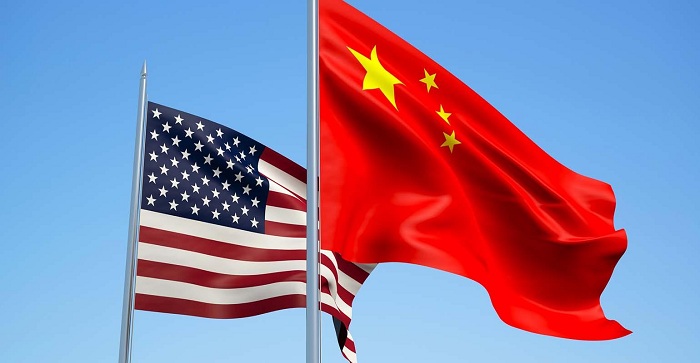US Secretary of State Antony Blinken stated that China will be held accountable by the US for its abuses of the international system. The point was made as he was speaking to his Chinese counterpart Yang Jiechi. Blinken also raised with Jiechi the issue of human rights violations in Xinjiang, Tibet, and Hong Kong. This reflects the bold foreign policy posture taken by US under Joe Biden.
Also Read: Australian Strategic Policy Institute finds out about detention camps in China
The two leaders, Blinken & Jiechi spoke, in what was the first conversation between the top officials since President Joe Biden took office on January 20.
US countering China
Secretary Blinken stressed that the United States will continue to stand up for human rights and democratic values, including in Xinjiang, Tibet, and Hong Kong. This is reflective of the Wilsonian spirit in the Foreign Policy stance under Biden. State Department Spokesperson Ned Price said in a readout of the call, that Blinken also pressed China to join the international community in condemning the military coup in Burma (Myanmar).
China has faced severe criticism, in recent years from western countries over human rights violations in Tibet. Persistent reports of the mass detention of Uyghurs and other minorities in Xinjiang have cornered China over the issue, and attracted scathing criticisms from multiple parties.
China has also ramped up a crackdown in Hong Kong after imposing a new law against subversion following major protests in the city.
Ned Price added that during the call, Blinken reaffirmed that the United States will work together with its allies and partners in defence of their shared values and interests to hold China accountable for its efforts to threaten stability in the Indo-Pacific , including across the Taiwan Strait, and its undermining of the rules-based international system.
Blinken tweeted, “In my call with my counterpart in Beijing, I made clear the US will defend our national interests, stand up for our democratic values, and hold Beijing accountable for its abuses of the international system.”
Apart from human rights issues, US is seeking to involve and engage China in talks that can result in bringing the latter in a Nuclear treaty aimed at limiting and reducing the nuclear armaments. The New START treaty is being considered as the platform on which China can be integrated into the disarmament and arms limitation talks. Robert Wood is the US ambassador to the UN in Geneva, & the US Commissioner for the New START treaty’s bilateral consultative Commission. Few days back, Wood, in a speech to the Conference on Disarmament, a body sponsored by the UN, with Russian & Chinese ambassadors in attendance, called for a treaty which would “cover more weapons, and eventually more countries.”
In another geographical theatre, almost all of the 1.3 million square-mile South China Sea is claimed by China as its sovereign territory and the Red Dragon has been building military bases on artificial islands in the region also claimed by Brunei, Malaysia, the Philippines, Taiwan and Vietnam.
Especially during and after the Covid19 outbreak, the tensions in the South China Sea have increased between China & US, with navies of both the countries carrying out exercises in the disputed region. The SCS region also stands as testing bed for the defence angle of Biden’s foreign policy given it has close links with rivals of China in the region.
Chinese challenge for US in the Middle-East
Gradual increase in the involvement of China in the middle-east is also a cause of concern for the West, especially the US under the leadership of Biden and Blinken. US has managed to keep China at bay in the context of the deepening relation between Israel and UAE after the signing of the Abraham Accords. It has been able to distance China from the development of the Haifa and Ashdod ports or Israel’s 5G network.
This does not mean a complete absence of China from the port development works in Israel or ME in general. The vaccine diplomacy by China through the placement of its Covid19 vaccine Sinopharm is also a cause of concern for the Biden-led US coming out of the cocoon Trump had put around the American diplomacy. Pfizer vaccine requires -70 degree Celsius while the Sinopharm vaccine needs 2-8 Degrees Celsius for cold storage, which gives an advantage to China to place its vaccine in the ME. And, the outgoing & aggressive health diplomacy adopted by China when Trump cut-off US from the world vaccine efforts & the WHO, had made the vaccine game tougher for US. China had prioritized UAE over others in giving away doses of Sinopharm vaccine. Choosing of UAE by China is unsurprising as the Arab state is now getting cold-shoulders from US especially in the context of the conflicts in the region like the Yemeni Civil War.
Certainly, all of these might be playing on the minds of the policy wonks in the current WH under Biden.
US withdrawal of support from Yemeni War
Biden administration in its stance to protect human rights has recently withdrawn its support in the Yemen war, in the Arabian Peninsula, including relevant arms sales. In this regard, the WH has suspended arms sale to Saudi Arabia and has put the arms-sales to the UAE under review. Biden had also stated that the USAID would ensure that humanitarian aid reaches the Yemenis who are on the brink of starvation in the worst man-made humanitarian crisis.
As a part of diplomatic rapport building, Antony Blinken, after being sworn in as the Secretary of State, has spoken over the phone with nearly 30 of his counterparts from various parts of the world. He also spoke with External Affairs Minister S Jaishankar on January 29, during which the two leaders reaffirmed the growing bilateral partnership between the two countries.





